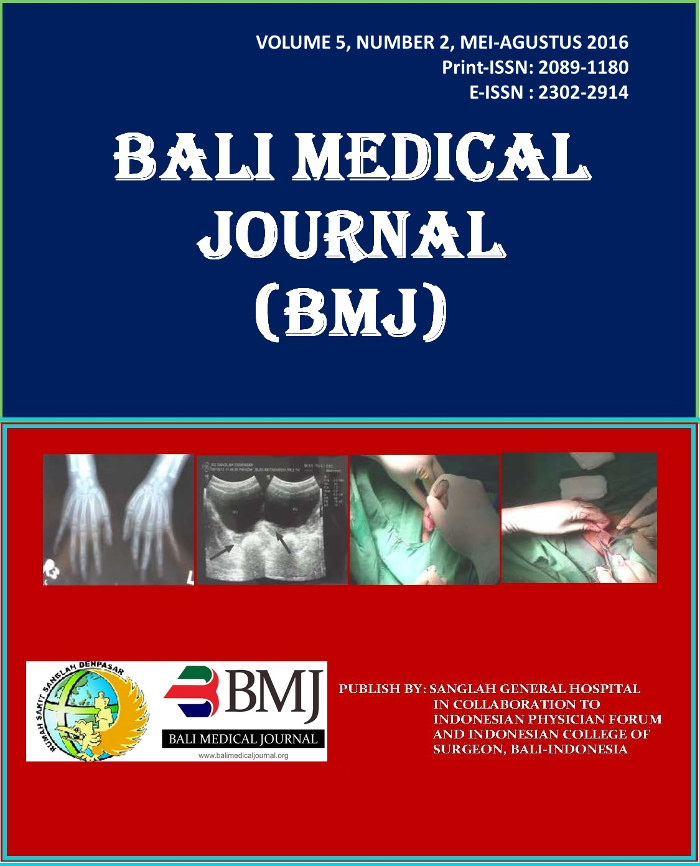Association of Epidermal Growth Factor Receptor (EGFR) with Tumor Location and Clinicopathological Aspect in Head and Neck Squamous Cell Carcinoma
Abstract
Background: Head and neck squamous cell carcinoma (HNSCC) is the most common type of head and neck cancer. Most patients came with advanced disease which results in suboptimal treatment. EGFR is one of prognostic factors that play important role in HNSCC pathogenesis and progression. Unraveling the expression profile of EGFR in anterior and posterior HNSCC and its comparison would provide physician with better information regarding EGFR based treatment or its prognostic value. Methods: An observational cross sectional analytic study was conducted to compare EGFR expression between anterior and posterior HNSCC. The association between EGFR expressions with clinicopathological aspects (tumor stadium and histological grade) of HNSCC which analyzed separately. Baseline characteristic and each variable were first analyzed descriptively. Comparative analysis was conducted using Chi-Square and Fisher exact test with p value less than 0.05 was considered significant. Result: 48 samples were used in this study. Most of the subjects were elderly (83.2%), men (72.9%) and came with advanced disease (Clinical Stadium III-IV) (83.3%). Most of the subjects were EGFR (+) (93%). In anterior region group, low expression of EGFR was found in 6 patients (25%) and high expression in 18 patients (75%). Meanwhile in posterior region group we found low expression in 10 patients (41.7%) and 14 patients with high expression of EGFR (58.3%). We found no association between EFGR and HNSCC location (anterior or posterior) (p=0.221). Insignificant association also reported between EGFR expression with clinical stage of anterior (p=0.625) and posterior (p=0.283) HNSCC as well as histopathological grade of both location (p=0.33 for anterior group and p=0.371 for posterior group). Conclusion: We concluded that EGFR was diffusely expressed in HNSCC but there was no association between EGFR expression and clinicopathological characteristics and location of HNSCC.Downloads
Download data is not yet available.
Published
2016-06-27
How to Cite
NURATNA, I Nyoman Diwiya Abdi; WISESA, Ida Bagus Made Surya.
Association of Epidermal Growth Factor Receptor (EGFR) with Tumor Location and Clinicopathological Aspect in Head and Neck Squamous Cell Carcinoma.
BALI MEDICAL JOURNAL, [S.l.], v. 5, n. 2, june 2016.
ISSN 2302-2914.
Available at: <https://ojs.unud.ac.id/index.php/bmj/article/view/21954>. Date accessed: 21 feb. 2026.
Issue
Section
Articles
Keywords
Epidermal growth factor receptor, Head and Neck Squamous cell carcinoma, Tumor location, Clinical stage, histopathology grade.


